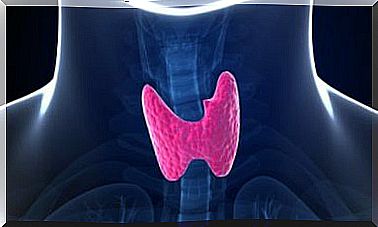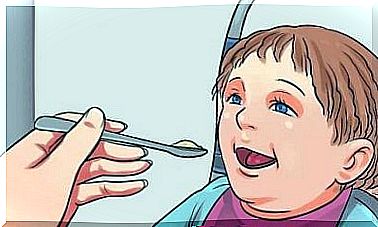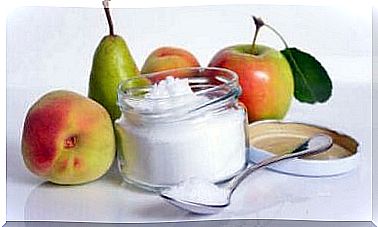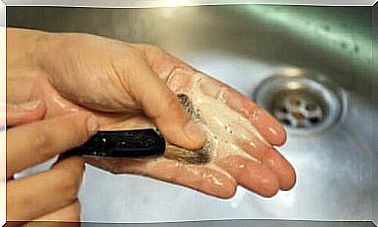American Scarlet: Properties, Application And Contraindications
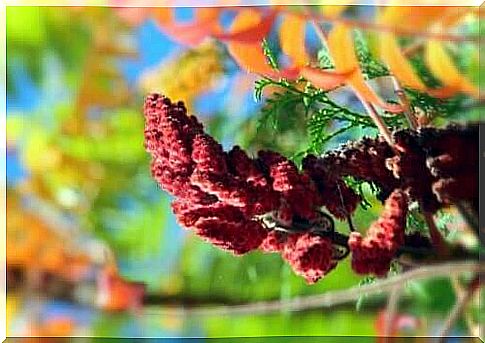
American Scarlet (Phytolacca americana) is a herbaceous plant found in various areas of North America, South America, Europe and Asia. It is also known as the “American Wolfberry” or “Cancer Root” and is used for medicinal and culinary purposes.
Even so, it has been established that some parts of the plant contain toxic ingredients that can only be removed through a rigorous cooking process. Therefore, the American Scarlet must be used with caution and its possible side effects should be considered before using it. To find out more, please read on.
What are the properties of the American Scarlet
Historical records indicate that the herb was an essential ingredient in Native Americans’ remedies to induce vomiting, cleanse the body, and combat the symptoms of rheumatism. Even until now, some cultures still use it for similar cases.
Its popularity seems to date back to the time when King’s American Dispensary was written , that is, at the end of the 19th century. This work discusses the potential of this plant in the treatment of skin diseases and joint pain. Despite this, we currently do not have much evidence of its operation. But what do we know about it?
American Scarlet and its ingredients
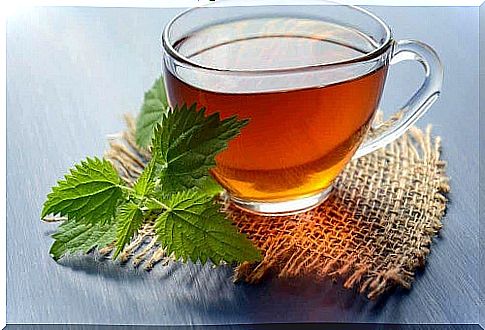
Sources such as “Germplasm Resources Information Network (GRIN)” and “Chinese Herbal Medicine. Materia medica “states that the Phytolacca americana contains a wide variety of chemical compounds with pharmacological potential. The most important ingredients of this plant are:
- Phytolaccoside A, B, C, D, E, F, G.
- Phytolakkagenin.
- Ialigonic acid, esculent acid, phytolacagenic acid and oleanolic acid.
- Triterpene alcohols: α-spinasterol, α-spinasterol-β-D glucoside, 6-palmityl-Δ7-stigmasterol-Δ-D glucoside, 6-palmytyl-α-spinasteryl-6-D glucoside.
- Astragaline.
- Lectins.
- Tannins
- Starch.
- PAP-R protein.
Thus, many different health properties of this plant have been found, but there are no reliable clinical studies to assess their effectiveness. In any case , it is said to have anti-rheumatic, anti-cancer, anti-inflammatory, analgesic and also vomiting effects.
American Scarlet – Possible Benefits and Applications
Despite information about the toxicity of the pokeweed, some cultures still defend it as an adjuvant against various diseases. American Scarlet is supposed to help with tonsillitis, laryngitis, acne, scabies, some types of cancer and AIDS. However, is there evidence in this regard?
For now, the plant has shown some medicinal benefits in laboratory and animal studies. However, there is a lack of research into its effects on humans. It is believed that the antiviral protein of the American pokeweed (PAP) is responsible for many of its properties. However, there is no certainty about this.
1. American Scarlet in diseases of the oral cavity
Meanwhile, Phytolacca americana extracts have been explored as possible supplements to prevent dental disease. In particular, a laboratory study published in BMC Complementary Medicine and Therapies found that the plant contains antimicrobial ingredients that help maintain oral health.
In particular, it inhibits important enzymes in bacteria such as Porphyromonas gingivalis and Streptococcus mutans , which are responsible for inflammatory periodontal disease and caries. However, in any of these cases, more evidence is needed.
2. Inflammation of the tonsils
A wide variety of homeopathic remedies to relieve the symptoms of tonsillitis contain traces of the American apple.
It is also believed that, along with other natural ingredients, it lubricates the throat mucosa and reduces pain and inflammation. Even so, there are no clinical studies to prove it.
3. Skin disorders
Undoubtedly, one of the main uses of the American apple is related to skin diseases. In folk medicine, it was used to help fight psoriasis, eczema and tuberculosis.
Its anti-inflammatory properties are said to be responsible for reducing swelling and pain in these conditions.
Paradoxically, however, direct contact with the root, stem or leaves of the plant may cause blisters similar to those caused by poison ivy. Therefore, it should be used with caution. Research on this topic is poor and out of date.
4. Cancerous tumors and AIDS
Neither American Scarlet nor other herbal supplements can cure chronic conditions such as cancer or HIV / AIDS. Despite popular claims about its benefits and conclusions from some clinical trials, it should not be used to treat these diseases.
However, the current evidence suggests that plant extracts hold promise for the development of future drugs to help treat these conditions.
For example, a study published in Phytotherapy Research showed that Phytolacca americana extracts can act against colon cancer cells by modifying gene expression.
Meanwhile, the Toxins journal reported that PAP – a protein found in the American flute – has the potential to turn into an immunotoxin. In other words, it can stimulate the activity of immune cells in response to the presence of tumors or cells.
5. Other untested uses

Much of the medicinal uses of the American pokeweed come from anecdotal reports. This means that there are no studies to prove it has any level of effectiveness. In turn, it is not known how to safely dose its extracts or ingredients. But what are these popular uses?
- Rheumatism.
- Bone pain from syphilis.
- Gastrointestinal disorders.
- Infections
- Mastoiditis.
- Muscles
- Acne.
- Enlarged thyroid gland.
Risks and contraindications
All parts of the American Wolfberry are considered toxic. Berries are the most poisonous, especially when green. In particular, they contain a substance called ” phytolacin” which irritates the digestive system of both humans and animals.
Its consumption may cause the following adverse effects:
- Abdominal cramps and pains.
- A burning sensation in the mouth, throat and esophagus.
- Diarrhea and vomiting
- Breathing difficulties.
- Dizziness or light-headedness
- Headache.
- Heart arythmia.
Likewise, if a plant comes into contact with broken skin, it causes similar symptoms. Direct contact with Phytolacca americana causes contact dermatitis in some people. In severe cases, plant poisoning leads to the following complications:
- Seizures
- Diarrhea and vomiting blood
- Respiratory paralysis
- Death (rare cases).
Meanwhile, many health food stores offer supplements and health products that contain the American apple. However, the US Food and Drug Administration (FDA) has not approved its use or assessed its safety.
It is also cautioned against possible interactions of wolfberry with drugs such as anticoagulants, antihypertensive drugs, and diuretics. It is not recommended for pregnant women, children or people with special medical conditions.
American Scarlet – forms of occurrence and doses
Be careful! So far, no guidelines have been defined for the safe use of American Scarlet and its derivatives. As a general rule, avoid eating and contacting a fresh plant. For this reason, supplements are sold in the form of tinctures, extracts, capsules, oils, and ointments.
When it comes to acquiring them, you have to take into account that they are not covered by the standards set by the FDA. Manufacturers often put a suggested dosage on the product packaging. Under no circumstances should these doses be exceeded.
What should you remember about this plant?
American Scarlet has been used in traditional medicine as a supplement to alleviate the symptoms of certain diseases. However, today it is warned about the dangers of its use due to the content of toxic compounds.
There is no concrete evidence of its effectiveness as a therapeutic agent. Therefore, it should not replace any treatment. In addition, pregnant women, children, and people with serious illness should avoid using it.

